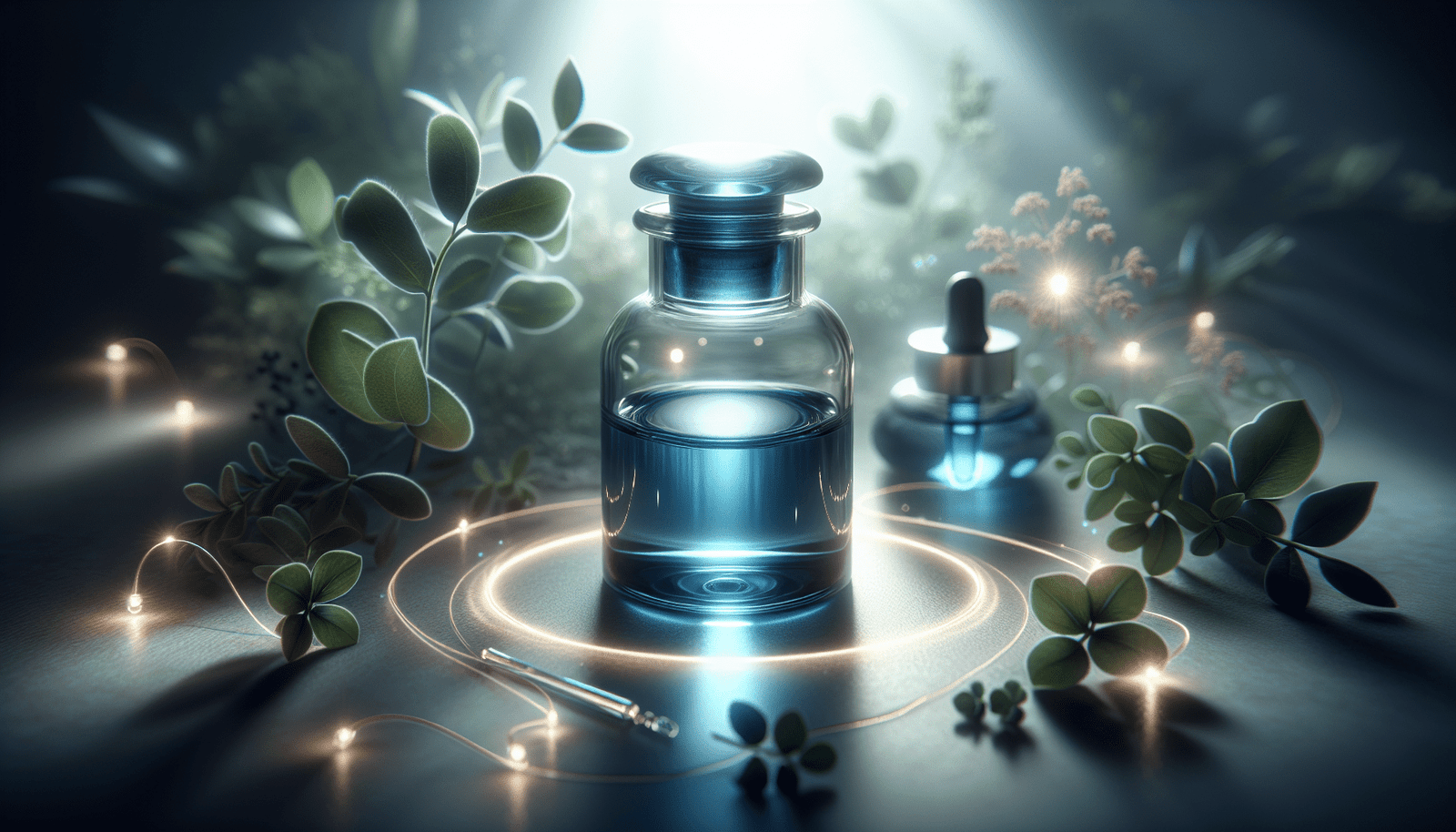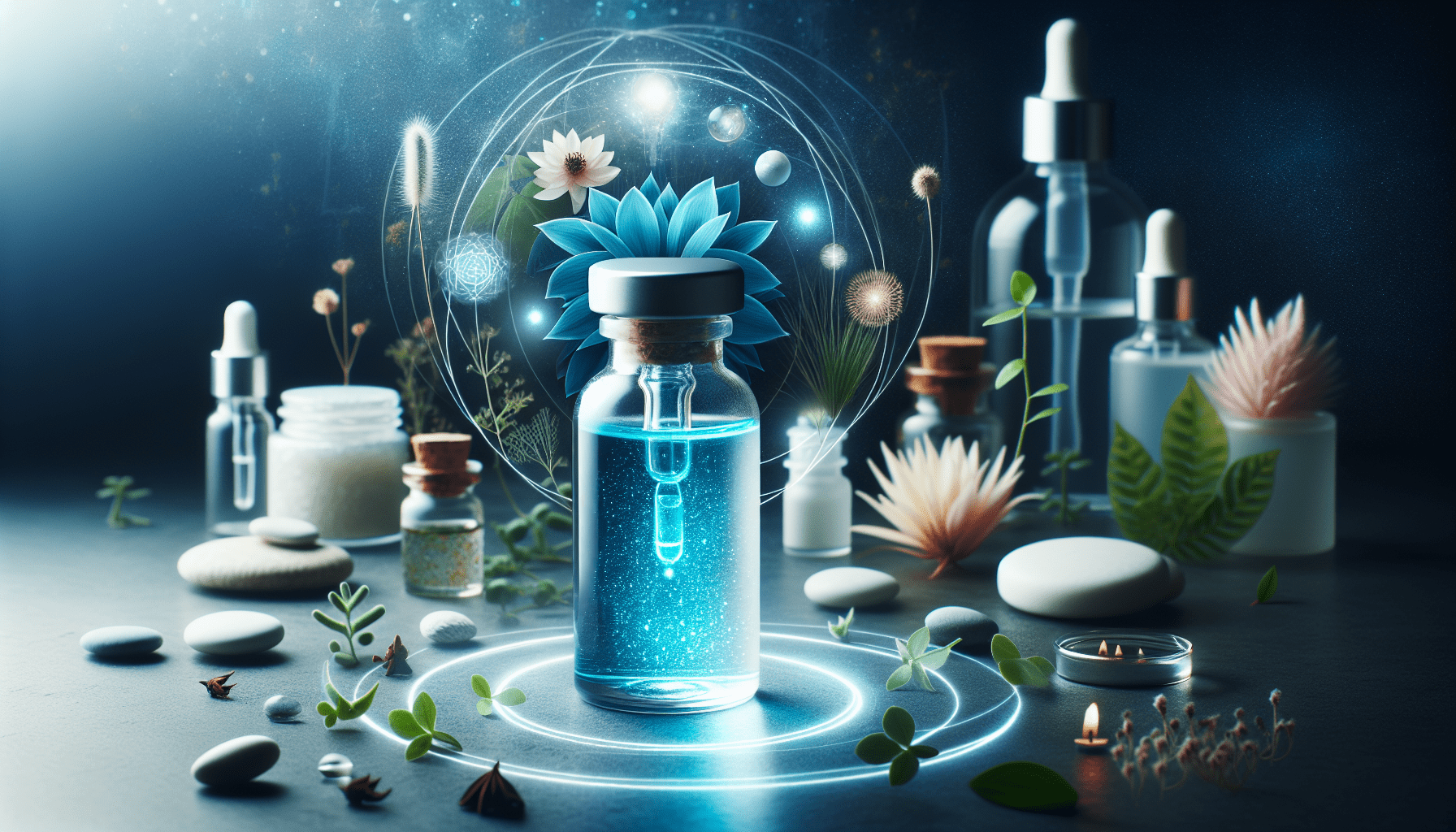
Does Methylene Blue Make You Look Younger?
Have you ever looked in the mirror and wished for a way to turn back the clock? The search for the elusive fountain of youth has led many down various paths, from skincare creams boasting anti-aging properties to the latest trends in supplements. One substance that’s been gaining attention recently is methylene blue. What’s the buzz about, and could it actually make you look younger? Let’s break it down together.
What is Methylene Blue?
Methylene blue is a synthetic dye that has been around since the late 19th century. Initially developed for use in textiles, it found its way into the medical field, being used as a treatment for methemoglobinemia, a condition where hemoglobin is unable to carry oxygen effectively in the blood. Can you imagine something so simple being used for such important health issues?
In recent years, methylene blue has sparked interest for its potential anti-aging properties. Some proponents suggest that it can enhance cellular metabolism, improve cognitive function, and even offer benefits for skin health. Before you get too excited, let’s explore exactly how it works.
The Science Behind Methylene Blue
Methylene blue acts as a redox agent, which means it plays a crucial role in transferring electrons in biological systems. When you think of energy in your cells, remember that it comes from mitochondria, the powerhouse of your cells. Methylene blue has been shown to improve mitochondrial function, which could enhance energy production. So, could this energy boost result in a more youthful appearance? It’s possible, but let’s look deeper.
Cellular Energy Production
To understand the role of methylene blue in energy production, it’s essential to grasp some basics of cellular respiration. This is the process by which cells convert nutrients into energy. When mitochondria effectively use oxygen, they produce adenosine triphosphate (ATP), the energy currency of cells. Researchers are exploring whether methylene blue can optimize this process.
Here’s a simplified breakdown of how it works:
| Step | Description |
|---|---|
| Glycolysis | Glucose is broken down to produce pyruvate. |
| Citric Acid Cycle (Krebs) | Pyruvate undergoes transformations to produce electron carriers. |
| Electron Transport Chain | Electrons from carriers are transferred, generating ATP. |
When methylene blue enters this process, it can potentially increase the efficiency of ATP production, giving your cells more energy to function at their best. More active cells can certainly contribute to a more vigorous look!
Antioxidant Properties
Another way methylene blue might contribute to a youthful appearance is through its antioxidant properties. Antioxidants neutralize free radicals, molecules that can cause oxidative damage to cells. This damage can accelerate aging, resulting in wrinkles, fine lines, and other signs of aging skin.
Methylene blue’s antioxidant effects may help counteract this damage. But how effective is it compared to other well-known antioxidants, like vitamin C or E?
| Antioxidant | Function | Sources |
|---|---|---|
| Methylene Blue | Protects mitochondria from oxidative stress | Stained tissue, lab applications |
| Vitamin C | Neutralizes free radicals | Citrus fruits, berries |
| Vitamin E | Protects cell membranes | Nuts, seeds, oils |
While methylene blue might not be the first one you think of when looking for skincare solutions, its role in protecting cells from damage is worth noting.

Methylene Blue and Skincare
Are you curious about how methylene blue fits into the world of skincare? With the rise of interest in antioxidants and innovative ingredients, it’s making an appearance as a potential skin enhancer. Let’s see how it might help.
Skin Regeneration
One of the claims about methylene blue is that it could aid in skin regeneration. By enhancing mitochondrial function, it may promote skin cell turnover, helping to eliminate dead skin cells and allow new, fresh skin to come through. Increased cell turnover can lead to a more vibrant, youthful appearance.
Reducing Inflammation
Inflammation is a significant contributor to aging, and if you’ve noticed red or irritated skin, you know how important it is to keep inflammation in check. Methylene blue has been studied for its anti-inflammatory effects. By potentially reducing inflammation in the skin, it may help you achieve that coveted glow.
As a Topical Treatment
You might be wondering how to incorporate methylene blue into your skincare routine. As a topical treatment, it’s becoming more common in serums and creams. However, always proceed with caution. The formulation, concentration, and your skin type all play a role in how effective it will be.
| Product Type | Description | Use Case |
|---|---|---|
| Serum | Concentrated active ingredients | Targeted treatment |
| Cream | Hydrating and protective layer | Daily moisture |
If you decide to try a methylene blue product, make sure to patch test first. You wouldn’t want to risk a reaction on your face!
The Evidence: What Does Research Say?
It’s one thing to hear about a substance, but what does the research reveal? While there’s some promising data surrounding methylene blue and its potential benefits for skin and overall health, the studies are still limited. Most research involves cellular models or animal studies rather than direct human application.
Clinical Studies
There have been few clinical trials that focus on methylene blue’s role in aging or skin health. However, some studies indicate it may improve cognitive function, which could, indirectly, affect how vibrant and youthful you appear. It’s all connected, yes? When your brain feels sharp, your whole demeanor changes.
Side Effects
One of the necessary discussions around methylene blue involves its side effects. It’s used in various medical applications, but just because something is effective doesn’t mean it’s without consequences.
| Possible Side Effect | Description |
|---|---|
| Skin Discoloration | Methylene blue can stain skin temporarily. |
| Allergic Reactions | Some individuals may experience irritation or rash. |
| Interactions | Can interact with certain medications, particularly antidepressants. |
Always consult with a healthcare professional before incorporating something new into your health or skincare routine, particularly one with potential side effects.

Other Anti-Aging Alternatives
If methylene blue isn’t your cup of tea, don’t worry! There are plenty of options out there that can help you feel and look younger. It’s important to choose what resonates with you and fits your lifestyle.
Retinoids
Retinoids are derived from vitamin A and are widely recognized for their ability to promote cell turnover. They can reduce the appearance of fine lines and improve skin texture.
Hyaluronic Acid
If you want to hydrate your skin, hyaluronic acid is your best friend. It can hold up to 1,000 times its weight in water, keeping your skin plump and moist.
Peptides
Peptides are short chains of amino acids and can stimulate collagen production. They’re excellent for improving skin elasticity and minimizing signs of aging.
| Alternative | Key Benefits |
|---|---|
| Retinoids | Promotes cell turnover; reduces fine lines |
| Hyaluronic Acid | Deep hydration; plump skin |
| Peptides | Boosts collagen; improves elasticity |
Lifestyle Factors in Aging
Does your daily routine impact how young you look? Absolutely! The way you treat your body, mind, and skin can make a significant difference.
Diet and Nutrition
You are what you eat, as the saying goes. A balanced diet rich in vitamins, minerals, and antioxidants can contribute to better skin health. Foods like berries, leafy greens, and omega-3 fatty acids play a vital role in fighting inflammation and promoting a youthful complexion.
Hydration
Staying hydrated is critical. Water helps flush out toxins, keeps your skin supple, and may even improve the appearance of fine lines.
Sun Protection
UV rays are one of the biggest culprits in aging skin. Protecting your skin from the sun with sunscreen not only helps prevent sunburn but also guards against long-term damage like wrinkles and hyperpigmentation.
| Lifestyle Factor | Importance |
|---|---|
| Diet | Provides essential nutrients for skin health |
| Hydration | Keeps skin supple and reduces dryness |
| Sun Protection | Prevents UV damage; protects against aging |
Final Thoughts: Is Methylene Blue Right for You?
Now that we’ve discussed the ins and outs of methylene blue, it’s time to answer the big question: does it make you look younger? While it may have some potential benefits based on its properties and functions, the evidence is still emerging. It’s not a magic bullet for youthfulness, but it could be an interesting addition to your routine if you feel drawn to it.
Before jumping in, do your due diligence. Research the products available, consult with healthcare professionals, and consider what works best for your skin type and lifestyle.
A youthful appearance often comes from a combination of factors—skincare, healthy habits, and maintaining a positive mindset. Embrace the journey and remember that feeling good about yourself is just as important as looking good.
Ultimately, whether you choose to incorporate methylene blue into your routine or stick with tried-and-true anti-aging methods, the most beautiful version of yourself shines from the inside out.